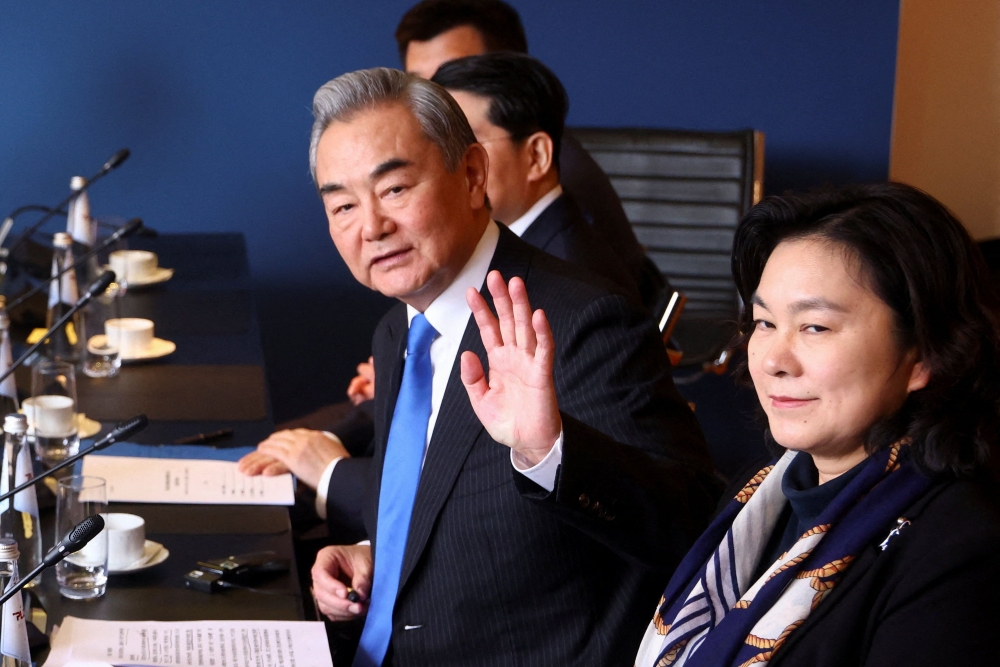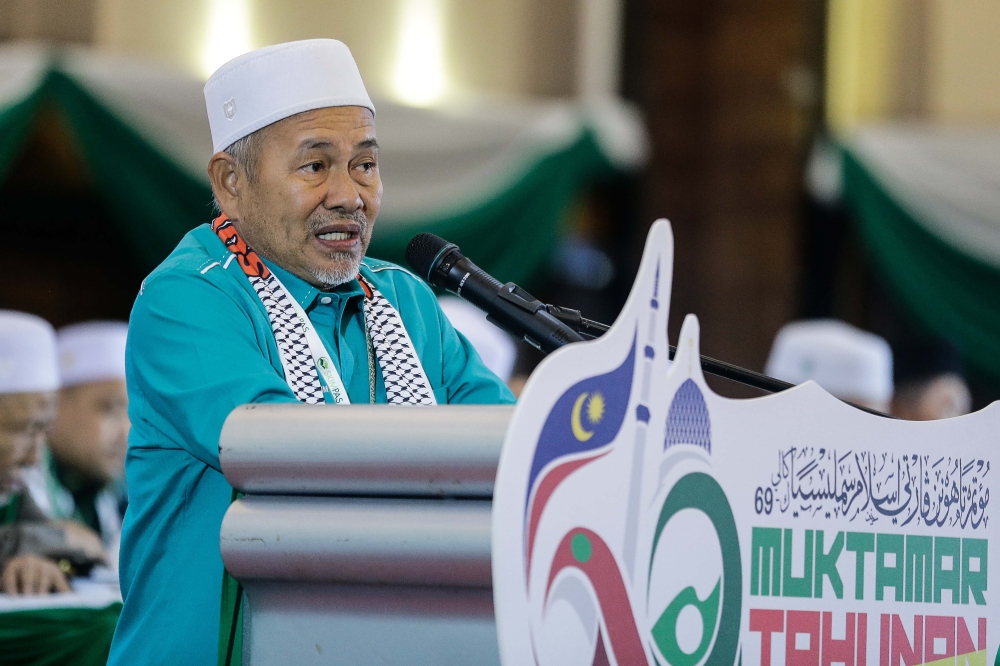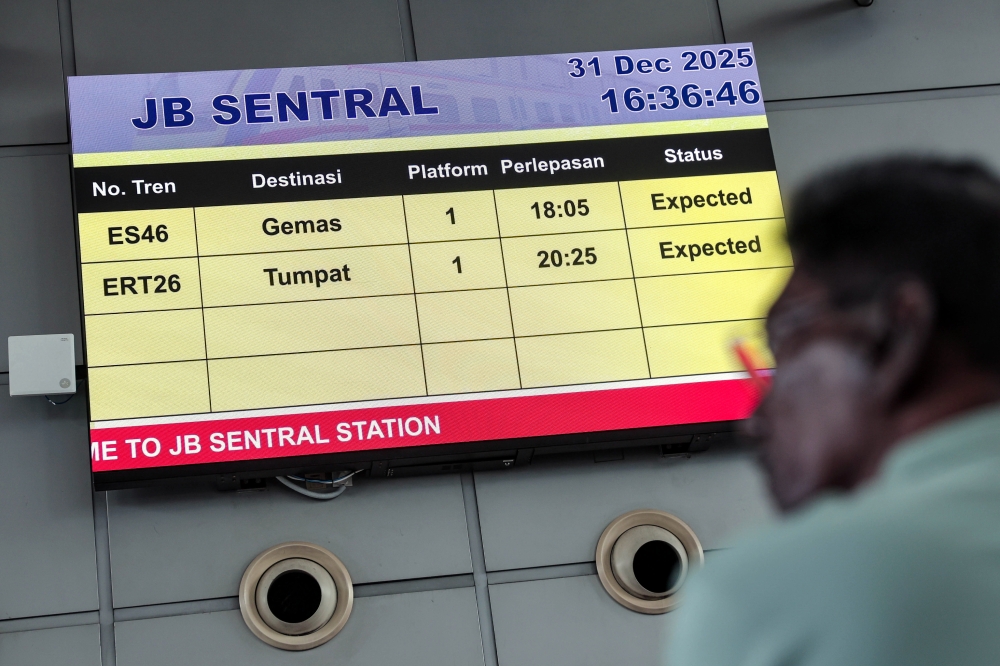COMMENTARY, March 19 — Let's put it this way, we have never seen this in our lifetime. Not in Malaysia's nationhood since 1957 and 1963. The last time the world saw such chaos was perhaps during World War II, some 75 years ago.
As a nation, we should approach the Covid-19 pandemic with a mindset of a nation facing a war — we are indeed facing a human vs virus war.
In 1941, the United States was shocked by a sudden attack on Pearl Harbour. In response to the crisis, the US focused on bringing people together, mobilising all available resources and ramping up industrial productions for war effort. Agility, coordination and massive changes to production are paramount in such difficult times.
On the day Pearl Harbour was attacked, the US Armed Forces strength was only 500,000. By the end of World War II, it was able to mobilise 8 million men for rapid training, turning factories into producing ammunition and supplies to support these men, and successfully transitioned them back to civilian life afterwards, through the GI Bill.
These are lessons we can learn in increasing our nation’s resilience and preparedness to face the war against Covid-19.
The Covid-19 crisis will change the way the world functions. Nothing will be the same again. In Malaysia, it will not just end on 31st March when the Movement Control Order (MCO) expires.
Even if the MCO is not extended, we will return to a “new normal” — it will be a very different setting from when we started on 18th March.
There might be an extended period of disruption to our lives, for social distancing policies are seen to be effective in fighting this pandemic. Are we prepared for increased temperature checks in buildings, habitual mask wearing, and other drastic measures which may be necessary? Until a vaccine is proven useful and mass-produced worldwide, we are not out of the woods just yet.
In the meantime, Malaysia faces the danger of “going the Italian way”. If we do not manage the Movement Control Order (MCO) effectively, we could potentially see an exponential growth of cases within days and witness the collapse of her health system within a week's time.
As a government, as a society, and as a nation, we need to prepare ourselves for the worst in order to be able to win over the war against Covid-19. We must be agile enough to ramp up the tempo of everything in the shortest time possible in order to win the long haul.Over the next two weeks, we need to ensure that we can control the community spread and there is no third wave or at least we can delay the third wave for as long as possible. At the same time, we have to discuss what to do as a society if we do return to some forms of normalcy after 31st March.
To achieve these two objectives, we may need to revisit some current assumptions: First, the assumption of only testing those showing symptoms is no longer the best approach.
My parliamentary colleague Kelvin Yii is a case in point. He tested positive for Covid-19 despite not displaying symptoms. We now know that measuring temperature will not detect asymptomatic cases, as well as cases who are still in the incubation phase.
We will need to be able to trace those contacts and start conducting tests on those who have contact with patients, whether or not they exhibit symptoms. South Korea has tested more than 250,000 people since the outbreak began, and has the capacity to test 15,000 people a day.
We will need to empower our industries to mass produce the kits and we will need the involvement of medical practitioners in the private healthcare sector to increase our capacity. More human resources is needed to save the lives of those infected and those severely harmed.
Second, the assumption that there is no need to wear masks if one is not having flu can be challenged.
We have to consider the need to mass produce masks and hand sanitisers for distribution to every corner of society, including rural areas and to undocumented foreign workers. We need to be able to mobilise industrial production, as well as community leaders to facilitate such large scale distribution.
Third, we need to drastically increase our hospitals’ capacity. This includes the availability of Intensive Care Unit (ICU) beds, as well as equipment such as the ventilators and supplies of protective equipment for medical personnel. We will have to act now before our hospitals and doctors are put under strain, like in the case of Italy, where many patients had to be sent home.
Considering that we have 450 ventilators in private hospitals on top of those in government facilities, there must be a plan to mobilise the private hospitals and businesses in this fight against Covid-19.
Fourth, we will rethink security in the community. There is a need to prepare machines to check temperature at airports, mass public transport facilities and major buildings when these public hotspots reopen, hopefully after 31st March. Security personnel at these places will need to ensure that they are not carriers themselves and they will need additional training and capacity building. We may not be able to rely on untrained foreign workers for this (they may not have proficiency in local language). We may have to deploy Malaysians who will undergo quick training over the next two weeks so that we can secure all such places.
To do the above, we need to get the people and institutions right.
1. We need bipartisan efforts.
It is unfortunate that besides battling Covid-19, Malaysia is facing a domestic political crisis and this Prime Minister came into power via political maneuvering. Though thisgovernment does not have political legitimacy, Pakatan stands ready to work with Perikatan Nasional in face of this crisis in the interest of the nation.
The government must show its readiness to work in a bipartisan manner. It will have to start with the Prime Minister setting the tone and reaching out to Pakatan Harapan top leaders as well as Menteri Besar or Chief Ministers from Pakatan States, instead of snubbing them from coordination meetings.
The Prime Minister has to be prepared to take a statesman approach in order for everyone else to reciprocate.
2. We need a “whole-of-government” approach.
The Prime Minister has given three national televised speeches on Covid-19 in the last seven days. But it cannot just be about the Prime Minister. The entire government machinery needs to work in sync. The left hand must know what the right hand is doing.
The entire Cabinet must prepare and plan to handle the worst case scenarios. All state governments, regardless of parties, would have to be brought in to work in sync too.
The next time the Prime Minister appears on television, it would be good if he operates from the Pusat Pengurusan Operasi Negara (PPON) and shares the detailed statistics as well as briefing the people on appropriate measures taken by the entire government across Ministries. The people need to know what is going on apart from being told to “duduk di rumah diam diam”.
3. We need Malaysians to look out for each other. #kitajagakita
Our medical personnel need to have their kids taken care of while they work overtime to save lives. We need the active participation of the citizens in such national crises. We need the students to feed their fellow students if they don't have food. We need the young in rural areas to help feed the old whose kids are not staying with them. We need many people to be trained as helpers at hospitals and medical facilities. We need all of them to do so safely without compromising their own health.
We need to rally the nation to face the crisis together. Active citizenry is needed, beyond staying at home and watching HBO. We cannot leave this to the Health Ministry or to the Government alone.
4. We need to rope in private hospitals, clinics and businesses
I have the highest respect for the Health Ministry personnel, from Director-General to the nurses. But they cannot do it alone. We need to quickly mobilise the private hospitals, military hospitals and private clinics to play a role. Or at least to be explicitly instructed on what they should do and be provided with adequate resources and relevant quick training to prepare for the eventuality of exponential growth of cases like Italy or a third wave. Most private hospitals are owned by GLCs. They should be mobilised with their GLC owners looking at it as a national service.
5. We need a Health Security approach
The decision to use Majlis Keselamatan Negara to coordinate to indicate a security approach is commendable. But MKN has all the while been acting as a secretariat.
There is a need for a ministerial rank National Security Advisor to be appointed at some point, while the Health Minister should be semi-permanent member of the Sidang Khas MKN meeting chaired by the Prime Minister until the pandemic ends. MKN must also consider setting up an advisory panel made up of healthcare professionals and scientists to make sure that the decisions they take are scientifically sound.
All security-related forces such as the police, the armed forces, prison, immigration (and to a lesser extent, customs) must first educate and thus secure their men and women not to be victims of Covid-19, and safely deployed to ensure the safety of others.
The Malaysian Armed Forces should also be utilised to play a bigger role, under the direction of civilian agencies. The Armed Forces is a ready tool for the state in times of crisis and it has always been their secondary role to assist the civilian authorities to secure ground in the new and yet to be defined circumstances and scenarios.
Our response to a crisis should be resilience and preparedness, not panic and fear. With coordination and cooperation from all Malaysians, we can overcome this “war” together.
* Senator Liew Chin Tong is a former deputy minister of defence
















.JPG)


